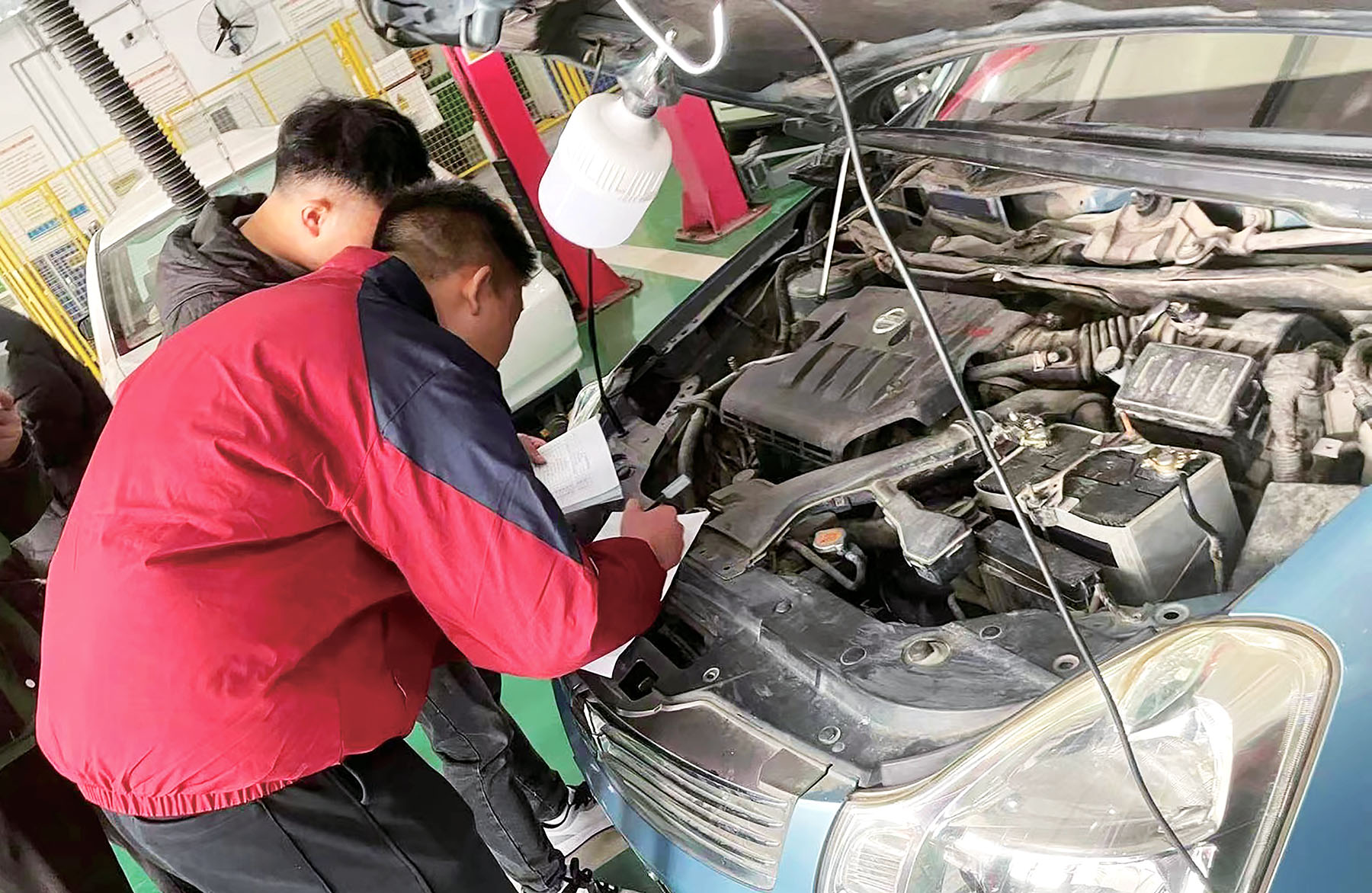He Langwei's passion for cars has led him from vocational school to university, where he prepares to pursue his childhood dream of building his own car.

He Langwei has harbored a dream of building his own car since childhood. "Cars were my obsession," he said. "According to my parents, I would gaze at passing cars when I was just a few months old, and disassembling and reassembling car toys was my childhood hobby."
Originally from Enshi Tujia and Miao autonomous prefecture in Central China's Hubei province, the 22-year-old has been steadfastly pursuing his dream since high school, when he made the surprising decision in his freshman year to transfer from a traditional high school to a vocational one.
Despite prevailing prejudices against vocational high schools, including skepticism from his parents who believed traditional high schools offered better prospects, He managed to convince them by explaining why this path would be most beneficial for him.
"It's true that most vocational students may not perform as well academically, but our abilities often shine in other, more practical applications," he said. "But having a clear goal and a future plan, while maintaining a resilient mindset, is crucial."
READ MORE: Explore China's rural revitalization successes
Thriving in the vocational school environment, He felt at home. "I vividly remember my first time in the training room, surrounded by countless car parts and tools, where I could systematically learn how to disassemble, assemble, and repair. I felt one step closer to my dream."
He came to appreciate the significance of hands-on experience in the field of auto mechanics.
"When I encountered the term 'dynamometer' in the textbook, I struggled to grasp its essence. Even after doing more research, I still couldn't quite understand it," He said. "It wasn't until I used the device in the training center to measure the car engine's power that I truly comprehended its function."
Realizing that what he learned in vocational school was far from enough, He decided to take the technical college entrance exam three years later, scoring 604 out of 700 and ranking 40th in the province. This achievement secured his admission to the School of Mechanical and Electrical Engineering at Wuhan Business University in Wuhan, Hubei.

Upon entering college, He discovered the importance of integrating theory with practice.
"In theory classes, we delve into mechanical principles, which provide us with the foundation of machinery design. We then apply these theories in the automotive repair training center, where we study not only traditional fuel vehicles but also new energy vehicles," explained He.
"Due to my experience in vocational high school, my mentor praised my performance in practical classes, making me more certain that I'm on the right path."
In his junior year of college, He decided to apply for graduate school because he realized that what he had learned from college was still not enough for him to build a car. "There's still so much to learn about automobiles," he said.
The preparation process for the graduate school entrance exam was extremely stressful, especially since He was aiming for a competitive program at the School of Mechanical and Transportation Engineering at Chongqing University.
"During the second semester of my junior year, I joined a group chat with students preparing for the same program and found that many had impressive accolades from competitions or came from prestigious universities. I was daunted and discouraged at first," He admitted.
However, he refused to succumb to self-doubt. "No student from my college had ever been admitted to Chongqing University. When others found out where I was applying, they would say, 'What makes you think you can be the first to succeed?'" He recalled. "I thought to myself, 'Well, since nobody has ever achieved it, it wouldn't be too embarrassing if I failed.'"
ALSO READ: Young explorers embrace Jinan's past
He dedicated months to studying, with minimal breaks for meals and sleep, investing 14 hours a day.
He attributed his sharp focus and perseverance to his love for the field. "I could spend hours in the training room honing my skills without feeling tired at all."
He also highlighted the crucial support he received from his family and friends. "It took time for my parents to come to terms with and ultimately endorse my decision to transfer to a vocational high school, but they've been very supportive ever since," he said. "My cousin and classmates also offered comfort and encouragement from a peer's perspective."
Starting his studies at Chongqing University this fall, He is poised to pursue his dream of building his own car.
"I'm consistently uncovering more facets of the automotive industry. It has evolved beyond the conventional image of repairing cars while covered in dirty engine oil; there are now many high-tech applications. I believe the automotive industry can be considered a 'high-precision' sector," he said. "To aspiring youths intrigued by this field, I urge them to explore and engage. Give it a try; this field may surprise you."
Contact the writers at lixinran@i21st.cn


